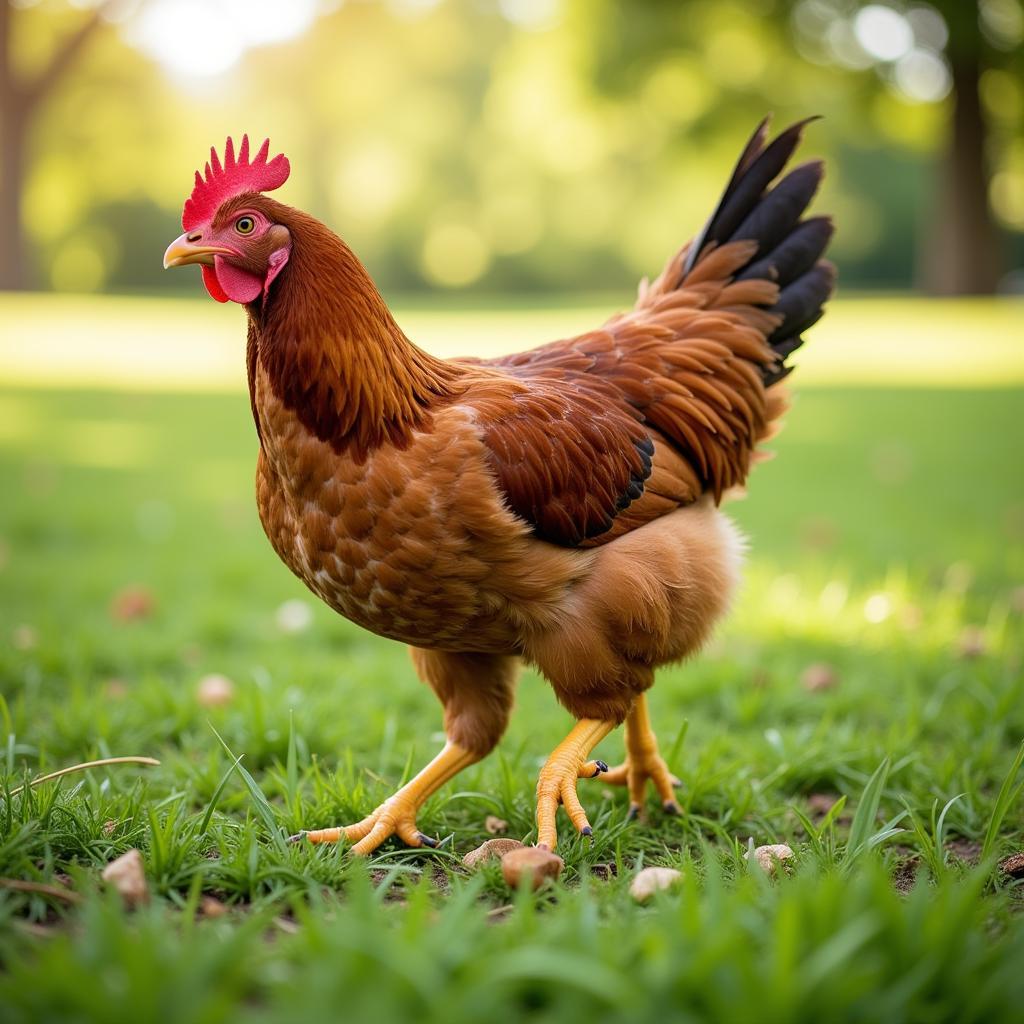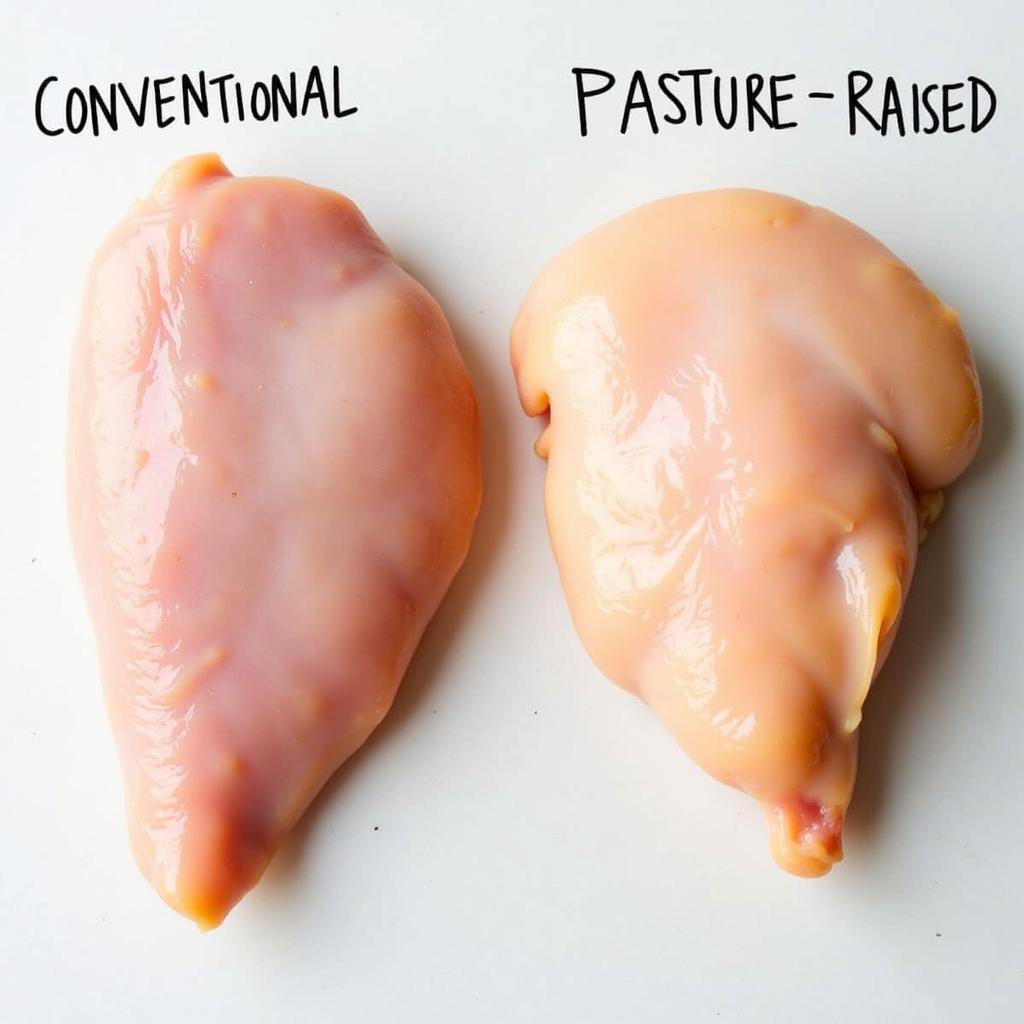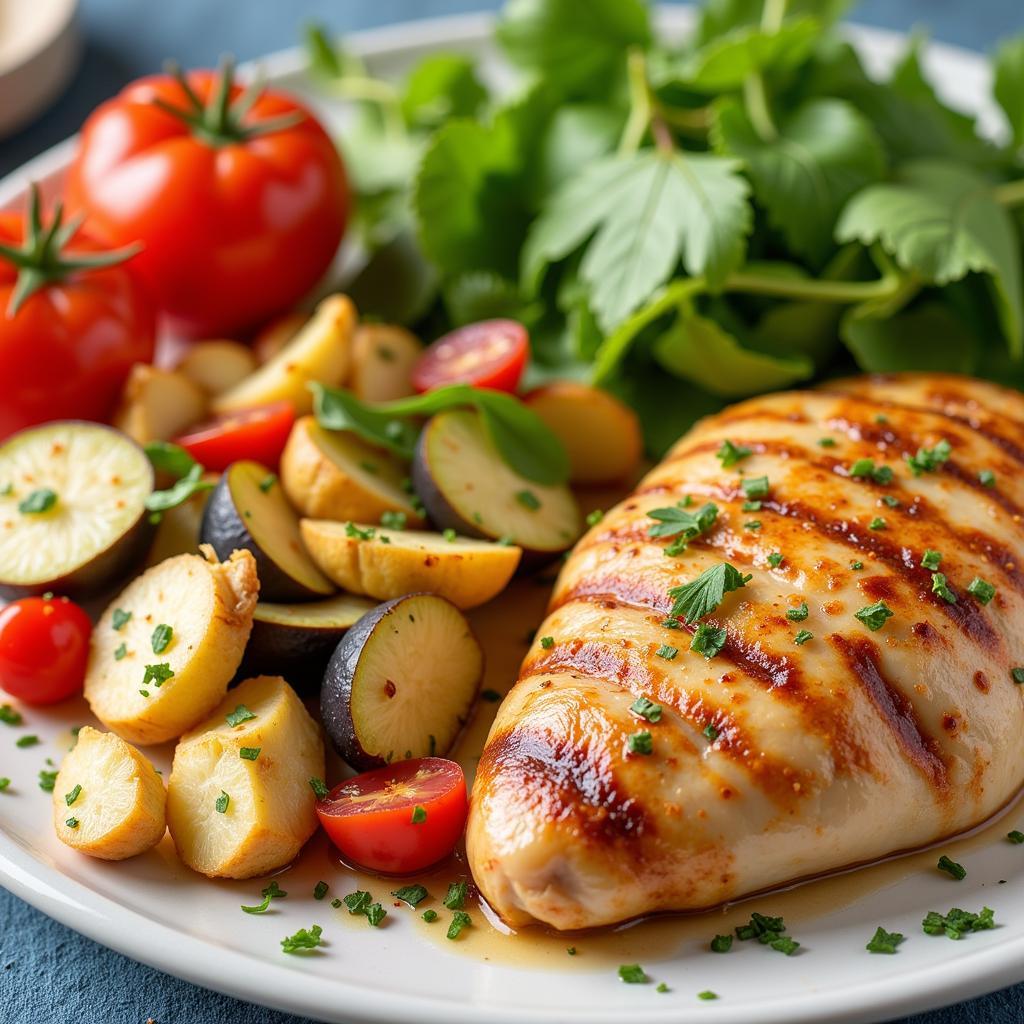When it comes to putting dinner on the table, chicken often takes center stage. It’s versatile, relatively affordable, and a good source of protein. But with a dizzying array of chicken options available, from humble supermarket roasters to fancy free-range, organic birds with hefty price tags, one can’t help but wonder: is expensive chicken really worth it?
 Gà nuôi tự nhiên
Gà nuôi tự nhiên
What Makes Chicken So Pricey?
Before we dive into the taste test, let’s unpack the factors that influence chicken prices. Like most things in life, the cost of chicken boils down to supply and demand, with a generous helping of production methods thrown in.
- Feed: Chickens gotta eat, and the quality of their feed directly impacts the final product. Expensive chicken is often raised on a diet of organic grains, which cost more than conventional feed.
- Living Conditions: Forget cramped, crowded coops – chickens raised for premium meat often enjoy spacious, free-range environments. These humane living conditions come at a premium, reflected in the price tag.
- Breed: Just like dog breeds have unique characteristics, chicken breeds differ in growth rate, meat quality, and egg production. Some heritage breeds, prized for their flavor, take longer to mature, leading to higher rearing costs.
- Organic & Certified Humane Labels: Meeting the standards for organic certification and humane treatment involves additional costs for farmers, which are passed on to consumers.
The Taste Test: Does Expensive Chicken Actually Taste Better?
Now, the million-dollar question (or at least the few-extra-dollars-per-pound question): does expensive chicken actually taste better? While taste is subjective, many people find that pricier chicken varieties offer a noticeable difference in flavor and texture.
- Flavor: Free-range, pasture-raised chickens, with their varied diets and exercise, often develop a more robust, “chicken-y” flavor that’s often lacking in conventionally raised birds.
- Texture: The difference in texture can be striking. Expensive chicken tends to be firmer and less watery, especially when it comes to white meat.
 So sánh thực phẩm
So sánh thực phẩm
Beyond Taste: The Ethical and Environmental Impact
The decision to splurge on expensive chicken goes beyond just taste. It’s also about supporting ethical farming practices and reducing your environmental footprint.
- Animal Welfare: Choosing chicken from farms that prioritize humane treatment means supporting better living conditions and reducing the demand for factory farming practices.
- Environmental Sustainability: Sustainable farming practices, such as rotational grazing and composting, promote soil health, reduce pollution, and contribute to a healthier ecosystem.
Making Informed Choices: Tips for Buying Chicken
Navigating the world of chicken can be overwhelming. Here are a few tips to help you make informed choices:
- Read Labels Carefully: Don’t be fooled by marketing jargon. Look for labels like “Certified Organic,” “Free-Range,” or “Pasture-Raised” to ensure the chicken meets certain standards.
- Consider Your Budget: While premium chicken comes at a cost, there are ways to incorporate it into your diet affordably. Buying whole chickens or less popular cuts can be more budget-friendly.
- Prioritize Taste and Values: Ultimately, the best chicken is the one that aligns with your taste preferences and values.
Is Expensive Chicken Worth It?
So, is shelling out extra cash for expensive chicken worth it? The answer, like most things in life, is: it depends. If you value flavor, texture, animal welfare, and environmental sustainability, then investing in higher-quality chicken can be a worthwhile decision. However, if you’re on a tight budget, there’s absolutely nothing wrong with opting for more affordable options.
The key is to be an informed consumer, weigh your priorities, and make choices that align with your values and your wallet. After all, whether it’s a simple weeknight dinner or a special occasion feast, chicken should be enjoyed by everyone.
Frequently Asked Questions (FAQs)
1. What does “free-range” actually mean?
The term “free-range” indicates that chickens have access to the outdoors, but the amount of time and space they have can vary greatly. Look for certifications or labels that specify pasture-raised or provide details about outdoor access.
2. Is organic chicken always better?
Organic certification ensures that chickens are raised without antibiotics or hormones and fed an organic diet. However, it doesn’t always guarantee humane treatment or extensive outdoor access. Consider additional labels like “Animal Welfare Approved” for a more comprehensive assessment.
3. How can I tell if chicken is fresh?
Fresh chicken should have a firm texture, a neutral odor, and a light pink or white color. Avoid chicken that feels slimy, has a strong odor, or appears discolored.
4. Can I freeze chicken?
Yes, you can freeze chicken for up to 6 months. Ensure it’s properly wrapped to prevent freezer burn.
5. What are some budget-friendly ways to enjoy higher-quality chicken?
Consider buying whole chickens and breaking them down yourself, opting for less popular cuts like thighs and drumsticks, or looking for sales and discounts at local farmers’ markets.
 Bữa ăn với gà
Bữa ăn với gà
Still Have Questions? We’re Here to Help!
For personalized advice on choosing the right chicken for your needs, feel free to reach out to our team. Contact us at:
Phone: 0909802228
Email: doibongda@gmail.com
Address: 101 Đ. Lý Chiêu Hoàng, Phường 10, Quận 6, Hồ Chí Minh, Việt Nam.
Our dedicated customer support team is available 24/7 to assist you.